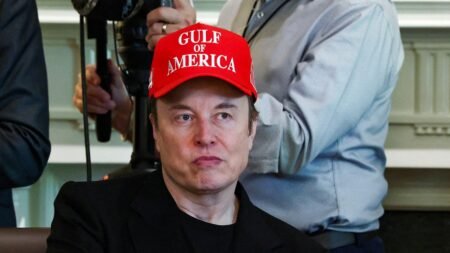U.S. Treasury Secretary Scott Bessent offered a timeline update for potential tariff negotiations with China on Thursday, while reminding the American adversary of its “devastating” economic outlook.
“We saw some very poor [gross domestic product] numbers out of China yesterday. We’re now seeing very large estimates of job growth loss from 5 to 10 million jobs. So the Chinese economy is slowing down substantially here. So, what we will first want to see is a de-escalation,” Bessent told FOX Business’ Maria Bartiromo on “Mornings with Maria.”
“They are the most unbalanced, imbalanced economy in the history of the world,” he added, “and they need to rebalance.”
China’s 125% tariff on U.S. imports and America’s 145% tariff on Chinese imports “are not sustainable on the Chinese side,” according to the secretary who has largely backed President Donald Trump’s April 2 executive order which placed reciprocal tariffs on a host of various countries, accusing them of unfair trade practices against the U.S.
TRUMP SAYS TARIFFS ARE INCENTIVIZING U.S. INVESTMENT, HURTING CHINA
Last week, Chinese officials claimed they are not in any talks or negotiations with the Trump administration about tariffs, but Bessent teased that “a big deal” could be made between the two competitors.
“The big deal that could be done here is, President Trump has reoriented the U.S. toward a manufacturing economy, taking us back to the strength that’s been sapped over the past several decades. Everyone knows that China needs to re-balance towards more consumption,” Bessent said.
“So if we could rebalance together, then that would be the big deal. But in the meantime,” he noted, “we’re going to bring down the unfair trade barriers and hold them to the agreements that they previously signed.”
In January 2020, the Economic and Trade Agreement between the Government of the United States of America and the Government of the People’s Republic of China was passed as a phase one negotiation aimed at easing tensions on intellectual property, technology transfers and goods and services.
“Everything is on the table for the economic relationship. I am confident that the Chinese will want to reach a deal,” Bessent said.
“The Chinese need to de-escalate these high tariffs, because there is the equivalent of an embargo, and the Chinese business model is built on selling cheap goods to the U.S. They sell us about five times more than we sell them,” he expanded. “Their factories are closing down as we speak. We’re going into the holiday season. Orders are placed for that now, so if those orders aren’t placed, it could be devastating for the Chinese.”
READ MORE FROM FOX BUSINESS
Read the full article here
















